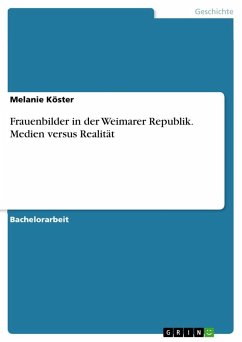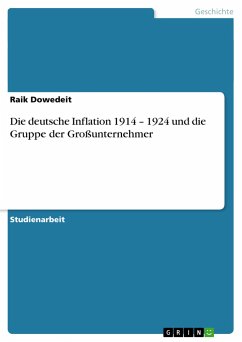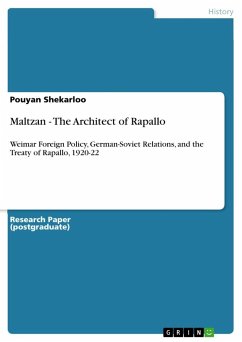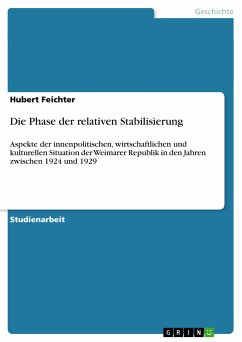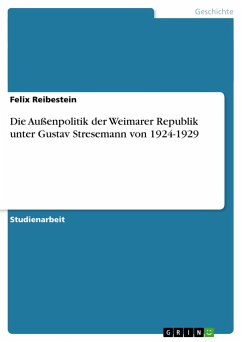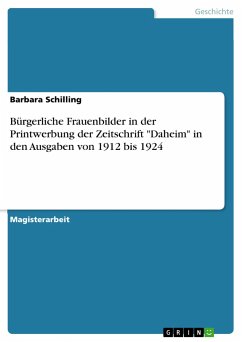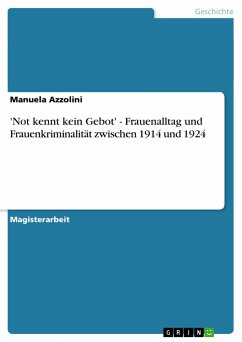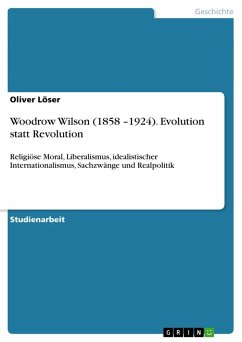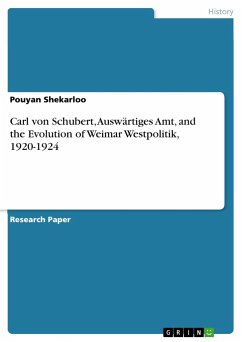
Carl von Schubert, Auswärtiges Amt, and the Evolution of Weimar Westpolitik, 1920-1924

PAYBACK Punkte
0 °P sammeln!
Research Paper (postgraduate) from the year 2011 in the subject History Europe - Germany - World War I, Weimar Republic, grade: 2+, The American University, Washington, DC (Department of History), course: Research Seminar, language: English, abstract: Schubert did not only possess foresight and the "political sagacity of an old Roman" but he was probably the most ardent proponent of a new German foreign policy in the Weimar Republic, which pursued a modern understanding of diplomacy based on multilateralism and balancing of interest among the concert of European powers. Schubert was the incarn...
Research Paper (postgraduate) from the year 2011 in the subject History Europe - Germany - World War I, Weimar Republic, grade: 2+, The American University, Washington, DC (Department of History), course: Research Seminar, language: English, abstract: Schubert did not only possess foresight and the "political sagacity of an old Roman" but he was probably the most ardent proponent of a new German foreign policy in the Weimar Republic, which pursued a modern understanding of diplomacy based on multilateralism and balancing of interest among the concert of European powers. Schubert was the incarnation of German "republican foreign policy" in the 1920s, which had abandoned power politics and stressed the importance of economics and trade, negotiations and cooperation instead. He was the distinguished person in the Auswärtiges Amt, which from the beginning called and pursued a coherent and steady policy of understanding and accommodation with the Western powers (United States, Great Britain, and France). Schubert knew that Germany would only be able to regain its former great power status if it succeeded to gain the trust and acceptance of the other powers through its cooperation and reliability. In this regard, he put all his strength and efforts in the service of an operational and professional Foreign Office to direct its policy towards this end. However, German "republican foreign policy" and the emphasis of cooperation with the Western countries is highly connected with the person of Gustav Stresemann, Chancellor and Foreign Minister of the Weimar Republic from 1923-1929. Throughout the historiography on Weimar foreign policy, he receives all credit for a policy of modus vivendi with the Western powers and the special relationship that Germany established with the United States in particular after 1924. It is also well known that the Secretary of State, Carl von Schubert, was his right hand and that both complemented each other in the endeavour to bring Germany out of its international isolation and make it a respectable and reliable member of the concert of Europe. If Stresemann was the public face of this new policy, then Schubert was probably the backroom engineer of this strategy. As a duumvirate among the German foreign policy elite, they were responsible for the policies that led to the Dawes-Plan in 1924, Treaty of Locarno in 1925, and Germany's admission to the League of Nations in 1926, and finally Germany's accession to the Kellogg-Briand Pact in 1928.




